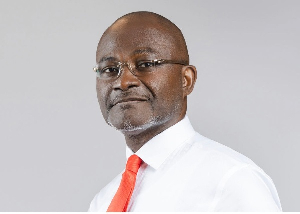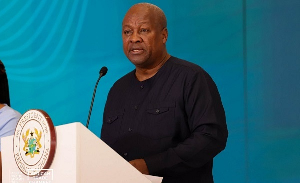The widely held notion that all politicians behave in the same manner when in power, is somewhat specious, so to speak.
“When all politicians turn out to be the same once in power, people lose faith in all politicians, and ultimately in democracy.”
In fact, I have been wondering for some time now the rationale behind the Ghanaian “celebrities” for gleefully pitching camps in the various political parties during the electioneering campaigns.
Take, for example, unlike the “celebrities” in Ghana, the British comedian, Russel Brand, is reported to have once urged his admirers to stay away from voting in order to “starve [politicians] of consent”.
In Brand’s opinion, “there is no point in voting for any politician, as they all ultimately behave the same way once they’re in office”.
Similarly, the Italian funnyman Beppe Grillo – had also contended some time ago that “politicians are all corrupt and incompetent.”
Grillo, however, propounded that “the way forward is not to stay away from elections but instead to elect more “non-politicians’ into office”.
In fact, I am in puzzled countenance with what Grillo meant by non-politicians. Did he mean to say comedians? May be he meant to say so.
In Ghana’s perspective, it would be a big joke to involve too many zanies in our quest to advance as a nation.
But whichever way you may analyse the situation, it appears as a rejection of “mainstream” politics by the fed-up electorates.
Apparently, this feeling of indignation with the current political dynamics across the globe is something shared by many Ghanaian electorates.
Thus, some of us were not surprise a bit when a member of “celebrities” for NPP 2016 electioneering campaign had an impertinent boldness to accuse some government appointees of corruption without providing any unobjectionable evidence.
Indeed, corruption more often than not slows down a nation’s development. Besides, corruption has become an ecumenical phenomenon in scope, substance and consequences.
But all said and done, in our haste to expose corrupt practices, do we have to aim accusing fingers at innocent people without any admissible evidence?
Let us face it, we cannot and must not go the way of the Italian funnyman Beppe Grillo, who holds an isolated thinker’s view that every politician on this planet is “corrupt and incompetent”.
Make no mistake, corruption, an apparent evil phenomenon, is found in all countries—big and small, rich and poor—but it is in the developing world that its effects are most destructive.
“Corruption hurts the poor disproportionately by diverting funds intended for development, undermining a Government’s ability to provide basic services, feeding inequality and injustice and discouraging foreign aid and investment.
“Corruption is a key element in economic underperformance and a major obstacle to poverty alleviation and development (UN 2003).”
As a matter of fact, we have deferential regard for politicians who have the heart to make sacrifices. Of course, we hold in high esteem the unpretentious politicians who have the wherewithal to do the right thing. And we admire the politicians who have the courage of their aspirations.
Suffice it to state that politics in Ghana has become a scoffed profession, not a noble profession it used to be. For it takes more than good laws and institutions for democracy to thrive.
It also takes good people—good citizens and leaders to keep politics going. Yet a lot of good people are reluctant to go into politics, for they dislike the toxic levels of politicking.
And more so they hate the intrusive media scrutiny and the unwarranted insults. And they won’t pay the high personal costs of the political life.
For that reason, we are more often than not presented with lousy plebes, many of whom can only boast of a mere school certificate.
Yes, once upon a time, anyone involved in Ghanaian politics was looked up to and respected by all; alas, this is not the case anymore.
Indeed, it hurts to show deference to jokers, who are blissfully parading in the corridors of politics.
Opinions of Saturday, 30 September 2017
Columnist: Kwaku Badu















